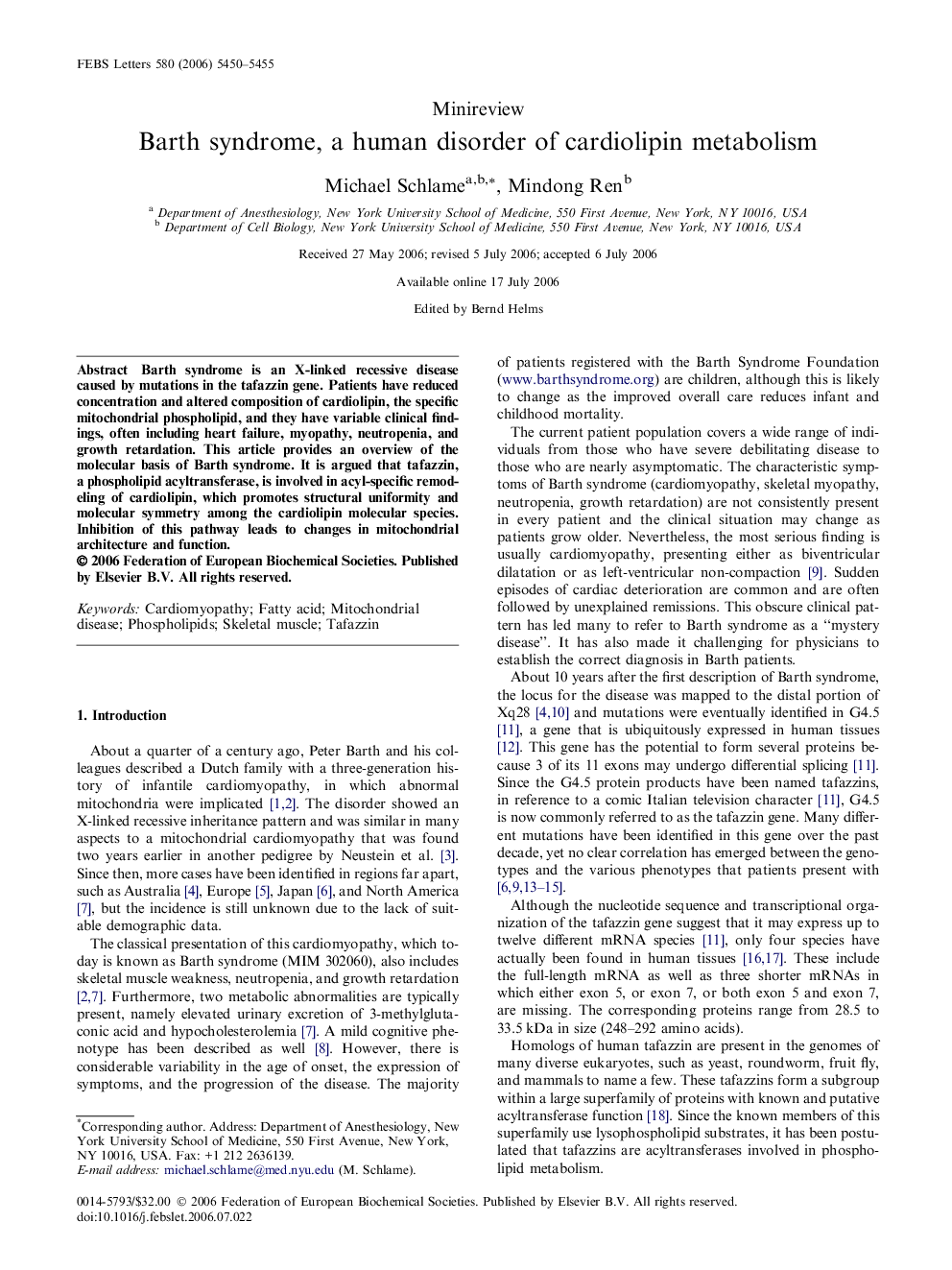| Article ID | Journal | Published Year | Pages | File Type |
|---|---|---|---|---|
| 2050405 | FEBS Letters | 2006 | 6 Pages |
Abstract
Barth syndrome is an X-linked recessive disease caused by mutations in the tafazzin gene. Patients have reduced concentration and altered composition of cardiolipin, the specific mitochondrial phospholipid, and they have variable clinical findings, often including heart failure, myopathy, neutropenia, and growth retardation. This article provides an overview of the molecular basis of Barth syndrome. It is argued that tafazzin, a phospholipid acyltransferase, is involved in acyl-specific remodeling of cardiolipin, which promotes structural uniformity and molecular symmetry among the cardiolipin molecular species. Inhibition of this pathway leads to changes in mitochondrial architecture and function.
Related Topics
Life Sciences
Agricultural and Biological Sciences
Plant Science
Authors
Michael Schlame, Mindong Ren,
